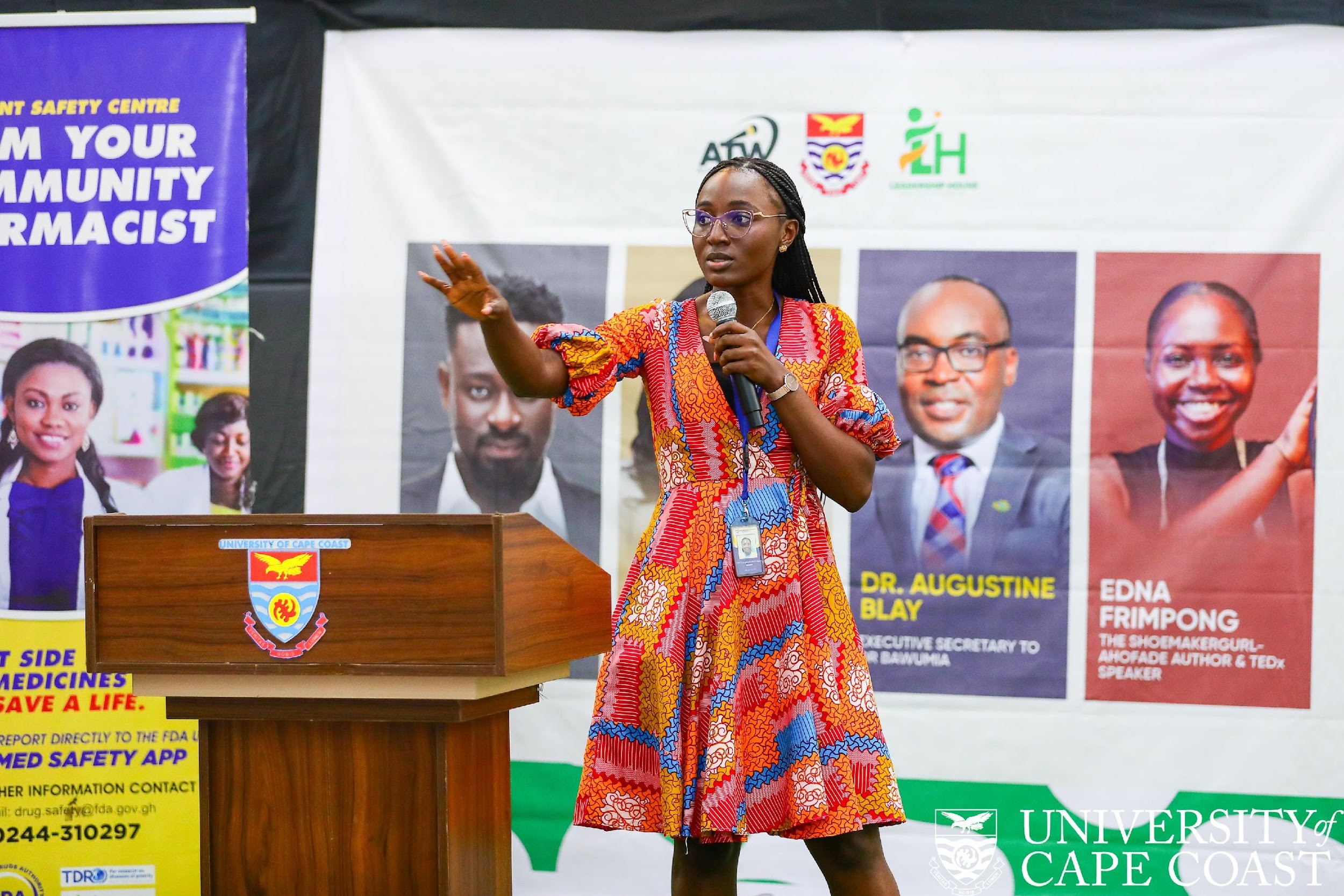The School of Pharmacy and Pharmaceutical Sciences, University of Cape Coast (UCC), in collaboration with the Food and Drugs Authority (FDA) has organised a comprehensive training programme on pharmacovigilance. The initiative was aimed at educating students from the School of Pharmacy and Pharmaceutical Sciences and the School of Allied Health Sciences on the importance of pharmacovigilance in their professional practice.
Pharmacovigilance is the science and practice of monitoring, detecting, assessing, understanding, and preventing adverse effects or any other drug-related problems to ensure the safe and effective use of medicines.
Delivering a presentation at the event, a Regulatory Officer from the FDA, Ms Princess Maame Baffoowah Ennin, elaborated on the systems the Authority has implemented to encourage early reporting of Adverse Drug Reactions (ADRs) and how such reports are managed.
Ms Princess Maame Baffoowah Ennin, a Regulatory Officer from the FDA
“Causality assessment is done to determine the relationship between the drug and the event after a case is reported,” she explained.
Ms Koranteng noted that following such an assessment, the reaction may be classified as “certain, probable, possible, unclassified or unclassifiable,” depending on the details of the case.
Chairman for the occasion, a Senior Lecturer and Head of Department of the Department of Pharmaceutical Chemistry, Dr Isaac Yaw Attah, praised the FDA for the initiative and reinforced the training’s relevance to students preparing to enter the healthcare profession.
“You will be dealing with drugs as healthcare professionals and so this programme is very important. I commend the FDA for this initiative and sensitisation,” he said.
Dr Attah concluded by reminding attendees of their ethical responsibility: “It is a professional duty to report cases of ADRs and not because you want someone to lose their job.”
Source: Documentation and Information Section-UCC


